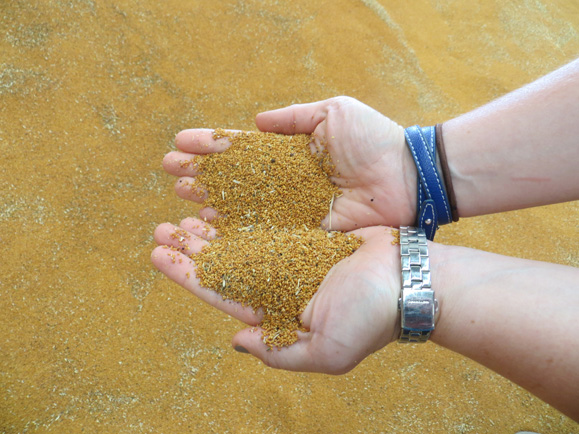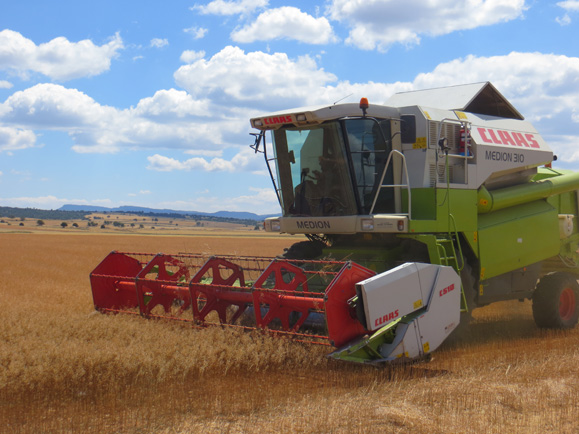Claude Caldwell
Claude Caldwell, associate dean academic in the Faculty of Agriculture, believes there is a big opportunity for Camelina in Atlantic Canada and sees it as the next big oilseed for Canada.
Camelina sativa, or false flax, is a hardy oilseed plant that is rich in omega-3 fatty acids, protein and antioxidants. This super-nutritious plant is used as a vegetable oil for human consumption and as an ingredient or supplement in some animal feeds.
“We’re really working to develop Camelina from the genetic stage through to end-product with the idea that we develop the full value chain – in other words, its grown here, processed here and used here,” he says.

Working closely with seed producers and feed companies, Dr. Caldwell and his team are looking to develop opportunities for Camelina in the region. One such opportunity is as a feed ingredient for farmed salmon and trout.
A recently completed large-scale study of camelina oil managed by Genome Atlantic with support from the Atlantic Canada Opportunities Agency Atlantic Innovation Fund, found camelina to be an excellent match to the fatty acid composition required in the diets of farmed fish.
The Canadian Food Inspection Agency (CFIA)- in response to Genome Atllantic’s application- agreed and recently approved the use of mechanically-extracted camelina oil as a feed ingredient for farmed salmon and trout.
Fish feed manufacturers have also explored the use of crop-based oilseeds like camelina as viable and cost-efficient substitutes for wild-sourced fish oils and proteins currently used in fish feeds.
While the CFIA’s recent approval only covers Camelina oil, Dr. Caldwell and his Dalhousie team are currently conducting feeding trials for the CFIA on Camelina meal. “Camelina meal can’t entirely replace fish meal used in fish feeds, but it could replace some of that meal,” he said.
 Camelina is grown in many parts of the world, including North America and Dr. Caldwell suggests camelina could be a good rotation crop for potatoes, making it a potentially viable option for farmers in the Maritimes.
Camelina is grown in many parts of the world, including North America and Dr. Caldwell suggests camelina could be a good rotation crop for potatoes, making it a potentially viable option for farmers in the Maritimes.
“There are about 150,000 acres of potatoes planted in this region,"he says. "Camelina could be a successful rotation crop that could open new markets for farmers while making the aquaculture industry healthier and more sustainable."
Honours student Hannah Arseneault, under the supervision of Dr. Caldwell, is also looking at the potential of intercropping Camelina with peas. “There is literature that shows synergies between these two crops and hence a possibility that growers may be able to make more money per acre growing the two together than separately,” says Dr. Caldwell.
Dr. Caldwell has been working with Camelina for the past ten years and although he is set to retire at the end of June, is passionate about continuing his work on Canada’s next oilseed.
The Camelina Project has also received support from the Research and Development Corporation of Newfoundland and Labrador (RDC), the provinces of Nova Scotia and New Brunswick, the University of Saskatchewan, Memorial University, Dalhousie University, Agriculture and Agri-Food Canada, Minas Seeds, Cooke Aquaculture and Genome Prairie.
For more information about the Camelina Project:
http://genomeatlantic.ca/project/camelina-developing-canadas-next-oilseed/
